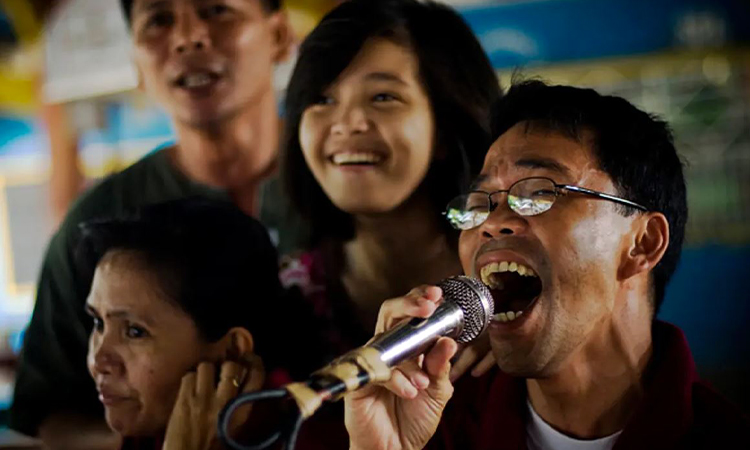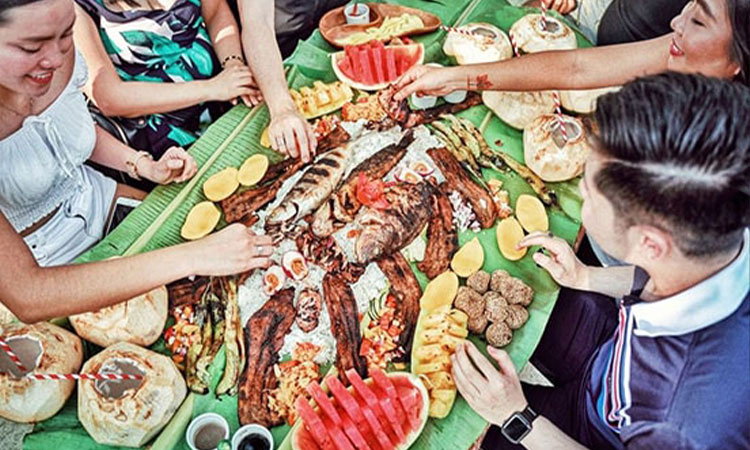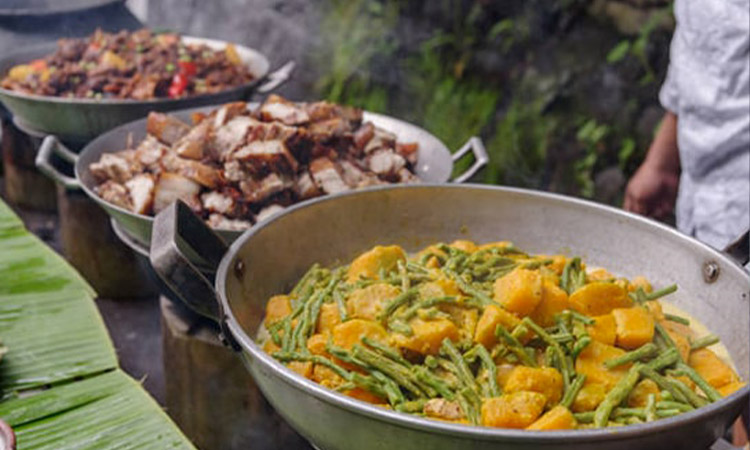
Each country has their own unique culture. Some social customs may seem strange for foreigners, while other norms are quite similar across countries. What’s unusual with one is normal with the other.
We’ve been in the Philippines for quite some time and we’ve experienced local Filipino culture firsthand. Because of their history and outside influences from neighboring countries, and colonizers alike, it’s no surprise that some of the norms and customs from other countries are also evident in the Philippines.
But here are some of the interesting similarities and differences we’ve noticed between the French and Filipino culture.
Disclaimer: most of the ideas written below are coming from our own experience living in both countries. We also gathered some insights from Filipino and French friends about this question. The content obviously contains generalities. As we know that we are not all such and such and everyone is different. Here our goal is just to lay out the common traits we see in the French and Filipino cultures.
Arriving on time is also a not-so-common habit in the Philippines. Those who live there would surely agree, right?
In fact, there’s what they call “Filipino Time.” This means that some Filipino folks arrive 30 minutes to 1 hour later than the set time. Aside from social gatherings, sometimes even big events and office meetings start a bit late to take into account Filipino time. Due to the very fickle traffic situation in Metro Manila, being late is quite common for several Filipinos.
So, if your Filipino friends arrive late to your party, don’t be too harsh on them.
As we lived in Manila for quite some time, we are anticipating that we will encounter heavy traffic, so we add some allowance and leave earlier than usual just to be on time.
Filipino youngsters find it being inconsiderate of other people’s time. That’s why they’re beginning to bust the concept and be more prompt in parties, meetings, and other social activities.

French are not that better with arriving on time at social gatherings.
Arriving exactly on time to a dinner party isn’t customary in France. It is said that proper etiquette is to arrive around 15 to 20 minutes late to the social gathering. The English actually have a term for that, “fashionably late”.
The host might be in the middle of preparing for the party if you arrive early or on time. Thus being quite rude for the host! Don’t stress your host by showing up too early or on-time. The host usually gets their makeup done, checks their outfit, and finishes plating the dishes during those extra minutes.
But what it said above is probably what foreigners think of the French's way of arriving late. Reality is that we try to arrive on time even though we are not as great as Germans in this matter.
However, arriving a bit late is only applicable for dinner parties held at homes where the hosts are the ones who are busy preparing the meals.
If you have a restaurant reservation, I guess like in any culture, people would arrive on time, not to lose their slot.
Food brings people together, as they say. And that’s true for the French and Filipinos! As both cultures' concept of bonding usually revolves around food. You will not encounter a single gathering without food.

The French love to bond over food and have a long, leisurely meal. In fact, our group meals could last for an hour or longer, with several courses being served. From flavorful amuse bouche to delectable sweet desserts.
We believe life is best experienced slowly. So we like to take things easy and to slow down and enjoy good food with great people, and connect with meaningful conversations.
We could talk about anything and everything for hours on end! Sometimes with a good glass of bordeaux or a pint of ale.
I remember when I used to work in the corporate setup and had to have lunch with my American boss. We had very different conceptions on food.
For him, lunch was definitely a concept whereas we need to be efficient, get our energy back and use food as fuel. So, 10 - 15 minutes was enough then we could go back to the office to work.
However, in France, sometimes I would have an hour or two for lunch as it was more of a social time. Where we could create meaningful relationships with someone. To take the time to appreciate each other’s presence. It was not only about food. It was more about our conception of time.
Another example in the Philippines, we had dinner with my French friends who were visiting Cebu. I invited my uncle and aunt from there to eat with us. At the end of the dinner, while it was time to pay the bill, we were still sitting at the table and chatting with my French friends. My uncle, a bit silent, was so surprised that we did not leave the place already.
We’re done eating so we should leave right? That’s sometimes not the case with French. So, we just stayed longer even if we were done eating. Because again, it was not about food. It is about discussions and social interactions.
Food and mealtimes are also very important to Filipinos. Members of a Filipino family would always sit down and have every meal together. You’ll rarely see them eating at different times of the day or while watching television. Eating is like a social affair.
And it’s their time to interact with each other and tell how their days went. This is also why food and eating are the highlight of any Filipino celebration.
But unlike the French, Filipinos are not used to eating slowly, enjoying the delicious meals they just partake in. Filipinos, just like the Americans, are used to a fast-paced lifestyle.
We also found it interesting that Filipinos like to ask “kumain ka na?” (have you eaten?). As a matter of fact it is one of Filipinos’ love languages or to express concern. Ask somebody they are with, their family or friends if they have eaten already.
And if they happen to see you while they’re eating, they’ll invite you to eat out of courtesy, by saying “kain po!” . (let’s eat). While eating some snacks (chips, biscuits, other finger foods) it is quite common for them to share it with the people they are with.
Also, something I’ve noticed, especially when working with call center agents. Is it me or do Filipinos have much more than 3 meals a day? I could always find them at different times in the pantry and not at the “usual” hour.

The French often greet each other with a double cheek-to-cheek kiss, or what we’d call faire la bise.
It’s as common as giving a handshake, that teens also do it when seeing friends. But of course we only do it with friends, family, and other people we know well. We wouldn’t initiate faire la bise with the bank manager or the town mayor, unless they initiate it first.
In most regions, the French would greet with two kisses. While it’s customary in other regions to give three, four, and even up to five kisses.
Faire la bise can also be for congratulating someone or wishing someone a happy new year.
Filipinos also do the la bise. It's called beso-beso and done on one side only. Filipinos may have adapted this Spanish culture. The word beso actually means kiss in Spanish.
They often do this when seeing friends, or even close co-workers. Usually it is initiated by Filipino women to other women, or with men that they’re comfortable with. It is not common for Filipino men to greet each other this way. A bro handshake, fist bump or a formal handshake is done instead. Affluent families often opt to beso their relatives.
Traditionally, the ‘mano’ (or bless in English more common when greeting relatives.
This is especially done upon seeing grandparents and other elderly relatives, and even close family friends as a sign of respect and a way of accepting the blessing from the elder.
Mano is done by bowing the head and pressing the forehead against the back of the offered hand. Oftentimes, the Filipinos would say “mano po” to the elder to ask for permission to do the gesture. And if the elder refuses, it means that they dislike you.
As a half Filipino, I used to do it with the elders when I visited them on my trips in the province. In France, I’ve never done it. I actually find the mano truly great as a good manner to display respectful greetings. And French people would definitely gain a lot if they adopt it.

Having fun is subjective, and there are a lot of ways to have a great time. This is where the French and the Filipinos vary a lot.
In France, we enjoy having controlled debates and frank, intellectual conversations with friends, until we get too drunk and our conversations become circular. Anyway, we often do this during parties, celebrations, and other social gatherings.
It is quite a common assumption that French people are rude, but it is just because French people are outspoken, they say what is in their minds which most of the time makes other people assume that they’re not nice.
This is what I’ve heard not even from Filipinos but also from other foreigners that speak about French people.
Some topics could be less taboo with the French. Talking about politics, religion, or money — nothing is really off the agenda. Even though money could be more taboo than in America.
That’s probably because French schools value critical thinking, openness, analyzing, and philosophy in school. The curriculum integrates these subjects early. Thus making French people remarkably cultured and knowledgeable. It’s the stimulating conversations that make us enjoy gatherings.
Filipinos absolutely love to have fun, - and living in the Philippines for some years, we can definitely attest to it - especially during parties and celebrations.
If you hear loud music in the Philippines, it’s most likely coming from a party! A Filipino celebration isn’t complete without the karaoke machine. The people love to belt out new and old songs all night long.

It doesn’t really matter whether you’re a good or confident singer, as long as you enjoy and have fun hitting all the notes! In fact, it’s so easy to find karaoke rentals in villages. And you could even buy smaller versions of the karaoke machine in local department stores!
A lot of hotels and resorts in the Philippines even have karaoke rooms in their facilities. So it’s a popular pastime among the Filipinos, even if there’s no party or celebration. Prepare your vocal cords if you’re invited to a Filipino celebration. Because you won’t get out without belting out at the karaoke machine!
When it comes to conversations, there are still a lot of topics that Filipinos find taboo. Like religion, politics, sex, money, among other things. Maybe because it reflects the conservatism of several Filipinos.
It is quite opposite from the common conversations that the French people talk about in these situations. Just to be safe, strike a conversation about the weather, the meals served, life experiences, showbiz, and other similar topics.
Filipino and French culture may not be close geographically or historically, but surely they have some interesting things that they have in common. And as visitors to both countries, one will realize that there is something good to learn from each other.
We did another post that is quite popular if you want to learn more about the French and Filipino Culture: French living in the Philippines, their insights on: Family & Independence.
And if you want to see other French - Filipino content creator that discuss about this topic, you can watch this 400K+ views, funny and entertaining, video of our friend HeyoLeah: Differences between FILIPINOS and FRENCH PEOPLE.
Let us know in the comments what you think of this subject, we’re very curious! 🙂


Get our recommendations, tips, and exclusive content before anyone else in your email box.